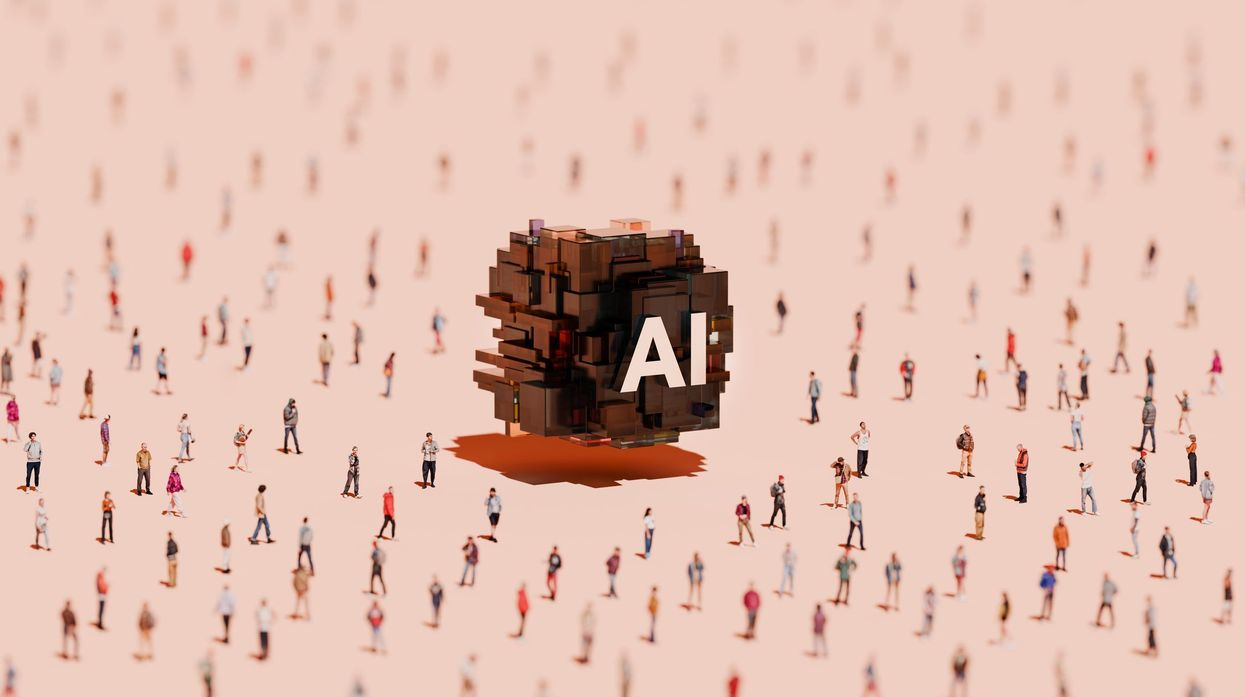The AI race that warrants the lion’s share of our attention and resources is not the one with China. Both superpowers should stop hurriedly pursuing AI advances for the sake of “beating” the other. We’ve seen such a race before. Both participants lose. The real race is against an unacceptable status quo: declining lifespans, increasing income inequality, intensifying climate chaos, and destabilizing politics. That status quo will drag on, absent the sorts of drastic improvements AI can bring about. AI may not solve those problems but it may accelerate our ability to improve collective well-being. That’s a race worth winning.
Geopolitical races have long sapped the U.S. of realizing a better future sooner. The U.S. squandered scarce resources and diverted talented staff to close the alleged missile gap with the USSR. President Dwight D. Eisenhower rightfully noted, “Every gun that is made, every warship launched, every rocket fired signifies, in the final sense, a theft from those who hunger and are not fed, those who are cold and are not clothed.” He realized that every race comes at an immense cost. In this case, the country was “spending the sweat of its laborers, the genius of its scientists, the hopes of its children.”
President John F. Kennedy failed to heed the guidance of his predecessor. He initiated yet another geopolitical contest by publicly challenging the USSR to a space race. Privately, he too knew that such a race required substantial trade-offs. Before Sputnik, Kennedy scoffed at spending precious funds on space endeavors. Following the Bay of Pigs Invasion, Kennedy reversed course. In his search for a political win, he found space. The rest, of course, is history. It’s true that the nation’s pursuit of the moon generated significant direct and indirect benefits. What’s unknowable, though, is what benefits could have been realized if Kennedy pursued his original science agenda: large-scale desalination of seawater. That bold endeavor would have also created spin-off improvements in related fields.
Decades from now, the true “winner” of the AI race will be the country that competes in the only race that really matters—tackling the most pressing economic, social, and political problems. The country that wins that race will have a richer, healthier, and more resilient population. That country will endure when crises unfold. Others will crumble.
AI development and deployment involve finite resources. The chips, energy, and expertise that go into creating leading AI models are in short supply. Chips accumulated by OpenAI, Anthropic, Google, and other massive AI labs to train the next frontier model are chips not being used to address more socially useful ends. Likewise, an AI expert working on a new AI-driven missile system is an expert not working on how AI can solve problems that have long been put on the back burner in the name of winning the geopolitical race of the moment.
Imagine the good that could come about if instead of prioritizing the pursuit of an unreachable AI frontier, we turned already impressive models toward the problems that will shape our long-term communal success. Early signs suggest that a pivot to this race would immediately improve the status quo. First, consider the potential for rapid improvements in health brought about by better, more affordable drugs. According to the Boston Consulting Group, AI-based discoveries or designs have spurred 67 clinical trials of new drugs. AstraZeneca reported that AI had cut its drug discovery process from years to months.
Second, consider the possibility of providing every student with personalized tutoring—setting us on a path to again become the most educated and productive workforce the world over. AI programs deployed in Bhutan helped students learn math skills in a fraction of the time when compared to classmates who received traditional math instruction. Closer to home, Khanmigo— an AI platform designed by the Khan Academy —is giving students personalized lessons in 266 school districts across the United States.
Third, and finally, consider a world in which traffic fatalities were halved thanks to the broader adoption of autonomous vehicles. Autonomous Vehicle (AV) companies have leveraged AI to make rapid advances in the ability of their vehicles to drive in all conditions. Further focus on these efforts may finally make AVs the majority of cars on the road and, as a result, save thousands of lives.
To redirect our AI race toward societal benefit, we need concrete policy changes. Federal research funding should prioritize AI applications targeting our most pressing challenges—healthcare access, energy development, and educational opportunities. Complementing this approach, tax incentives could reward companies that deploy AI for measurable social impact rather than pure market dominance. Additionally, public-private partnerships, similar to the one between Texas A&M and NVIDIA involving the creation of a high-performance supercomputer, could create innovation hubs focused specifically on using AI to solve regional problems, from drought management in the Southwest to infrastructure resilience on the coasts.
The choice before us is clear: we can continue the myopic pursuit of AI superiority for its own sake, or we can choose the wiser race—one toward a more innovative and prosperous future. History will not judge us by which nation first reached some arbitrary artificial intelligence threshold but by how we wielded this transformative technology to solve problems that have plagued humanity for generations. By redirecting our finite resources—chips, energy, and human ingenuity—toward these challenges, we can ensure that the true winners of the AI revolution will be all of us, not merely one flag or another. That is a victory worth pursuing with the full measure of our national commitment and creativity.
Kevin Frazier is an AI Innovation and Law Fellow at Texas Law and Author of the Appleseed AI substack.




















Trump & Hegseth gave Mark Kelly a huge 2028 gift